|
SOLARPUNK CREATURES is out now in ebook and paperback! Stories by N. R. M. Roshak, Tashan Mehta, Justine Norton-Kertson, Lauren C. Teffeau, Rimi B. Chatterjee, and more. A newly sentient AI inhabits a Roomba to escape from their research office, and a robotic dog hunts for rain in a drought-ridden world. A murder of crows disrupts production on a solar farm, and a young woman communes with a telepathic fungal network to protect a forest. A suspicious cat follows bees across the rooftops of a solarpunk city, and a rabbit hitches a ride to the Grand Canyon to fulfil a prophecy. The path toward better futures is one we must walk alongside other creatures, negotiating the challenges of multispecies justice. This speculative fiction anthology introduces a whole new cast of more-than-human protagonists: organic and digital, alien and fantastic, tiny and boundlessly large.
What Early Readers Are SayingDive into a dazzling world of sustainable futures with this Solarpunk anthology! A breath of fresh air in speculative fiction, it celebrates the diversity of voices and delivers a captivating array of short stories. Each tale unfolds unique and intriguing premises, painting a vivid mosaic of possibilities where technology and nature coalesce. A must-read for those seeking a hopeful glimpse into tomorrow. A dazzling array of polyphonic voices building lives new, strange and infinitely wonderful. I strongly recommend inviting them all into your brain. These stories have all my love. Every one was fun, fantastical, and solarpunk (the new steampunk I think). I especially loved the Threadloom, so imaginative and entertaining. This is for anyone that needs some whimsy and inventive fantasy. This anthology brings out delectable futuristic stories as seen by a new subaltern - robots, animals, artificial intelligence, birds, trees and other creatures who have been rendered voiceless by humans. Story Excerpts, Read by the Authors!
0 Comments
A newly sentient AI inhabits a Roomba to escape from their research office, and a robotic dog hunts for rain in a drought-ridden world. A murder of crows disrupts production on a solar farm, and a young woman communes with a telepathic fungal network to protect a forest. A suspicious cat follows bees across the rooftops of a solarpunk city, and a rabbit hitches a ride to the Grand Canyon to fulfil a prophecy. The path toward better futures is one we must walk alongside other creatures, negotiating the challenges of multispecies justice. This speculative fiction anthology introduces a whole new cast of more-than-human protagonists: organic and digital, alien and fantastic, tiny and boundlessly large. Solarpunk Creatures will be available in ebook and paperback January 16, 2024! Cover art and design by Paul Summerfield Pre-order NowTable of ContentsIntroduction by Christoph Rupprecht, Deborah Cleland, Melissa Ingaruca Moreno, Norie Tamura, Rajat Chaudhuri
Stories: “Threadloom” by N. R. M. Roshak “Sonora’s Journey” by Kai Holmwood “The Colorful Crow Of Web-Of-Life Park” by Sandra Ulbrich Almazan “The Business Of Bees” by Andrew Knighton “Night Fowls” by Ana Sun “Water Cycle” by Lauren C. Teffeau “Microbia” by Center For Militant Futurology “Rabbits, Rivers, And Prickly Pears” by Justine Norton-Kertson “Hunting For Rain” by Lyndsey Croal “AI Dreams Of Real Sheep—More At 8” by Commando Jugendstil and Tales from the EV Studio “An Inconvenient Unicorn” by Geraldine Briony Hunt “Quorum Sensing” by Calliope Papas “Flyby” by Priya Sarukkai Chabria “Quarropts Can’t Dance” by Rodrigo Culagovski “Thank Geo” by BrightFlame “Our Minds Share A City” by Catherine Yeates “Hopdog” by Rimi B. Chatterjee “Solar Murder” by A.E. Marling “The Wetlands Versus The Mayor” by Jerri Jerreat “Leaf Whispers, Ocean Song” by Tashan Mehta Artwork: “Kelp Gardens” and “Stormwater Streams” by Yen Shu Liao “Orange Crested Grebe” by Pamina Stewart “Solar Powered” by Badlungs Art “Renaissance Pisces” by Irina Tall “Tunaakola” by ZiitaMdot “Moth City” and “Kombucha Atoll” by Yen Shu Liao
"A Beautiful Nightmare" by Sarah Van Goethem I can’t help but turn and see it through her eyes, for the first time, all over again. Sharp grey rock—fieldstone I think, though there isn’t a field anywhere around. Miles of rolling green grass the shade of emeralds, and ivy that’s grown and twisted over time, pushing its tendrils in, embedding itself in the mortar. It’s gorgeous, really. That’s the thing. It’s all golden light and blue skies. A place that was meant to heal us, or so Nurse Ginger said. You’ll feel better in no time, dear. Just a little rest from the world. But therein lies the problem. None of us remembered what world it was we needed a rest from. "Three" by Nicola Kapron “You’ve never come out before. I’m starting to think you live down there.” “Where else would a troll live? Especially these days. The wild places are shrinking, there’s cameras everywhere, and cities are eating the globe.” A lopsided grin. “The world can change however it likes, but monsters will still live the same way they always have. It’s just a tossup if anyone else will notice.” "Neon Green in D Minor" by Laura VanArendonk Baugh I sling noodles at a street food stall. My hair is constantly coated with a film of cooking oil, splashed over me in little burning droplets that dot my skin with red marks to blend with the acne—but that doesn’t matter much in the Grimes. We know the doll-skinned faces in the giant billboards are fake; no one really looks so beautiful as the people in the advertisements. They want us to think rich people can look so fabulous, but it has to be a lie. Even if they don’t have hot oil burning their greasy skin, even if they have professional aestheticians to fill their leisurely days with beauty care, even with experts to polish their abnormally straight teeth, no one can look like that. In summer, the Grimes is hot. Really hot. They say our streets measure twelve degrees hotter than posh neighborhoods on the same day, not that I’ve ever been able to compare. That’s because when they divided the cities, the posh neighborhoods got things like green spaces and trees over the sidewalks, and we got cheap concrete and chemicals to kill anything that might crack it. Four generations after the war of liberation, even our weather is worse than theirs.
“Wishes to Heaven” by Michelle Tang “But why do you want to help me?” The moth’s voice sounded surprised. It spoke slowly, as though worried the woman would not understand. “Mei-Jin, you asked for help.” The lantern festival. Hope, long buried, sprouted within Mei-Jin. “I didn’t expect a moth.” “What better creature to find floating lights in the night? Think of me as your Fairy Godmoth.” “You mean Fairy Godmother.” The insect fluttered its wings. “Godmoth.” “A Story of Soil and Stardust” by Kelly Jarvis They will speak of a girl so good and kind she wore dresses spun of the sky. They will speak of a girl so good and kind she captured the heart of a Prince. They will sprinkle goodness and kindness like seeds across their firm dough of lies, and the famished villagers, enticed by the smell of stories baking like bread, will scramble to savor the first sweet bites of their sushki. It is true I wore a dress that shimmered with the shades of sunset. It is true I danced with a Prince, and my beauty took his breath away. But only my godmother knows the whole truth. I have never wanted to be good, and I have not always chosen to be kind. “Returning the Favor” by Lynden WadeIn one of the tales from the thick forests of Germany, a princess saves a prince from, of all things, an enchanted stove, then loses him again when she spends too long saying goodbye to her family. The quest to win back her beloved from his new fiancée is a familiar pattern in fairy-tales. But where other young women are helped by the sun, moon, and winds, or an old crone, in this story she is helped by three toads in a cottage. The conclusion has it that with the breaking of the enchantment the toads are revealed to be the children of kings.
The story is wrong on two points. One is the number of toads—there was only one. The other is how the tale ends. I should know: I was there. We are still considering submissions of short fiction (up to 7,000 words) and artwork for the Solarpunk Creatures anthology! Submissions close October 31, 2022. Full guidelines are here: https://www.worldweaverpress.com/blog/call-for-submissions-solarpunk-creatures Read below for more insights about what the editorial team is looking for! What is solarpunk? Optimistic and inclusive representations of better futures. Solarpunk embodies new ways of doing and being, which integrate ecology, technology, ethics, aesthetics, creativity, and justice. It makes space for beauty as well as practicality; it imagines abundance and delight, as well as care and restitution. A mosaic of concepts and tools, solarpunk virtues include sharing, cooperation, multispecies justice, connections, conviviality, care, decolonisation, degrowth, commons and commoning, and more, while striking a balance between individual freedom and social cohesion. Solarpunk tries to bring out the best in people, to tell stories of healing, of changing minds, of restorative justice. Solarpunk rejects the dystopian post-apocalypse—the privileged don’t get to give up on humanity, and humanity doesn’t get to give up on other species. What are creatures?Mammals, birds, reptiles, amphibians, fish, invertebrates, trees, plants, fungi, etc.—all of the many different species we share our planet with. We will consider stories and art about robots and AI, aliens lifeforms, mythological beings, dinosaurs or other extinct animals, and any other “unreal” creatures, if they take a solarpunk approach, but we hope to fill the bulk of the anthology with stories and art that center more realistic approaches to multispecies interactions and multispecies justice. Meet the EditorsChristoph Rupprecht, professor for sustainability based in Matsuyama (Shikoku) Japan What kind of stories he’s looking for in Solarunk Creatures: Solarpunk has its heart in the right place when it comes to being green/eco-oriented, but people CAN’T build our better futures alone. We need to collaborate with other species. I hope to get stories (and art!) that tell of renewal, hope, change, and reckoning through non-human senses, taking readers along on adventures outside of the everyday, and in the process hopefully fostering understanding, sympathy, respect, and maybe a sense of potential partnership with more-than-humans. I’d love to have as wide a variety of protagonists as possible, from animal to plant to fungi to microbe to non-living. Melissa Ingaruca Moreno, Researcher, Designer, Futurist in multispecies & smart urbanism What kind of stories she’s looking for in Solarunk Creatures: I would like to see radical political imaginaries. The fight for a solarpunk future—not a world that magically turned out better, but the stories of resistance, transformation, and dismantling of the industrial-capitalist complex. Or the coexistence/tension of solarpunk worlds with cyberpunk worlds (where capitalist corruption, surveillance, and technological authoritarianism remain). In that way, I would also love to see how we deal with the scars of loss (climate impacts), colonialism, capitalism, speciesism, and how we heal bodies, communities and land. I also would like to see stories of human non-human entanglements, stories around decentralized approaches to economies, maker spaces, common pool resources, more-than-human cognitive systems for cities. I’m also really curious to discover new aesthetics of naturecultures expressed in music, art, sensorial experiences that are possible in these worlds, or even new languages or ways of communication. Rajat Chaudhuri, fiction writer, activist, editor What kind of stories he’s looking for in Solarunk Creatures: I will be looking for stories which creatively and/or ingeniously situate non-human creatures at the centre (as a major plot point, main character, decisive helper/s, etc.) while engaging one or more of the ideas that drive solarpunks. I would also like to see how writers address colonisation of Nature and over-consumption, rewilding etc. by employing solarpunk tools, foregrounding multispecies connections and through a radically imaginative lens. Deborah Cleland, Visiting Fellow at Australian National University, political advisor What kind of stories she’s looking for in Solarunk Creatures: I think some of my favourite stories from Multispecies Cities spoke to the ways we would deal with all the problems/sadnesses that would still arise in a solarpunk world—conflict, heartbreak, loss, senescence, misunderstandings and mistakes—but with this backdrop of possibility. I’m also hoping for hybrid creatures, maybe ones that fall outside of traditional understandings of companion animals, for example. Norie Tamura, environmental scientist/social scientist of fishery and forestry What kind of stories she’s looking for in Solarunk Creatures: DIY technology, not large scale and/or industrial. A new relationship between nature and human or non-human. Multinational or stateless atmosphere. Especially interested in contributions from Japan. Need examples for inspiration? Check out these solarpunk stories with a multispecies focus: Multispecies Cities: Solarpunk Urban Futures https://www.worldweaverpress.com/store/p176/Multispecies_Cities.html “Secret Powers” by Anya Markov https://grist.org/fix/climate-fiction/imagine-2200-secret-powers/ “The Mammoth Steps” by Andrew Dana Hudson https://longnow.org/ideas/02022/08/31/the-mammoth-steps/ “Afterglow” by Lindsey Brodeck https://grist.org/fix/arts-culture/imagine-2200-climate-fiction-afterglow/ Ready to submit?Open for Submissions: October 1 – 31, 2022
Story Length: up to 7,000 words Payment: Fiction: $0.03 per word (USD) Art: $100 (USD) for previously unpublished art; $50 (USD) for reprint art Stories must be in English; translations are welcome, provided the original author has given permission. Simultaneous submissions are okay, so long as you let us know if it sells to another market before we can make a decision. Please send only one story or one work of visual art. Reprints will be considered if you mention in the cover letter where the story or artwork originally appeared. Fiction: Send story as a .doc, .docx, or .odt to [email protected]. Use the subject line SOLARPUNK CREATURES: [STORY TITLE] and include a brief cover letter in the body of the email. (Please do not summarize your story.) Artwork: Send art as .png or .jpeg attachments with a DPI of 300 or higher to [email protected]. Use the subject line SOLARPUNK CREATURES: [ARTWORK TITLE]. While both color and black and white will be considered, please note that all artwork will be printed in black and white in the paperback.  Which of your characters would you most like to meet in real life, and where would the two of you hang out? I would love to meet Tuvin, who is a Jegudun who we meet in Shards of History. Jeguduns are sort of like real life gargoyles, protecting the Taakwa Valley and the people who live there. They’re intelligent and kind and funny, and even though they look fierce, they’d just as soon invite you in for tea. As for where we’d hang out, that would probably be along the Columbia River Gorge where Tuvin would have plenty of room to show off his flying skills. And, it’s just a beautiful place with lots of views and plenty of waterfalls, lots of great hiking. I wouldn’t mind hiking to the top of a waterfall if Tuvin would be kind enough to carry up some goodies for a picnic. Favorite snack or drink while writing? That depends on the time of day! If I’m writing in the morning, coffee is my go-to. I make my own, add some Splenda (I know, it’s probably slowing killing me, but I avoid sugar as much as possible for reasons) and some whole milk, or creamer if we have it. There are lots of great coffee roasters in the Pacific Northwest, so there are plenty of tasty coffees to choose from. If I’m writing in the afternoon or evening, either tea or Coke Zero are my choices. If it’s not too late, I go for the caffeine. Otherwise, herbal tea it is, again with whole milk and Splenda, along with honey. Right now I’m working my way through a local blackberry honey. 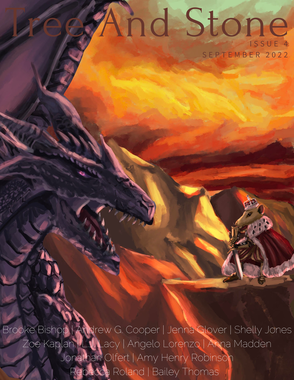 What else have you published recently? Most recently a piece of flash fiction titled “A Singing on the Verdigris River” came out in Tree and Stone. I belong to an online writing group, Codex, and every January the group hosts a flash fiction competition called Weekend Warrior. For five weekends, writers choose from one of several prompts that are put up Friday night and turn in a story Sunday night. Other participants read and judge during the week. “A Singing on the Verdigris River” came out of my mashing up a couple of the prompts. One prompt had to do with a chase involving an unusual means of transportation (in this case, a keelboat), and the other had to do with colors, I think. At any rate, I have more fun and come up with better stories when I mash a couple of prompts together. I have another flash piece coming out at some point in Daily Science Fiction. I’m pretty excited about that one because I’ve submitted to DSF fourteen times, and this is my first acceptance. Sadly, they’re going on hiatus later this year, so this is probably my first and only piece to come out there. Look out for “Wild and Free, the Moon and Blood,” a story about menopausal lycanthropy. What are you working on now? I’ve been working on a stand-alone fantasy novel featuring an older protagonist—a single mother, and a former swordswoman. I enjoy the Chosen One trope, so I played around with it, asking myself what would happen if, for a change, the Chosen One was an adult with responsibilities (kids, a home to care for, a job… you know, super serious adult stuff). I thought it would really suck to get that poke from the universe right smack in the middle of one’s life. On the other hand, it makes for a heck of a mid-life crisis. At any rate, I get to write about an older woman doing kick ass stuff. I get to incorporate my experience in kendo (sword fights are cool, ya know). And there are corgis, which is like putting a cherry smack on top of an already delicious sundae with the perfect ratio of chocolate drizzle to ice cream. Books by Rebecca RolandCall for Submissions: Solarpunk Creatures Open for Submissions: October 1 – 31, 2022 Story Length: up to 7,000 words Payment: Fiction: $0.03 per word (USD) Art: $100 (USD) for previously unpublished art; $50 (USD) for reprint art To imagine and build better futures, we’re championing a new wave of inclusive storytelling that centers nonhuman characters and positive multispecies interactions. Whether the setting is urban or rural or a space station, we’re looking for stories and artwork that put human-nonhuman or even nonhuman-nonhuman relations in the spotlight. We encourage creators to imagine nonhuman main characters, and we welcome narratives that acknowledge the agency of multispecies actors, both in the worldbuilding and in the plot. Because this is a solarpunk anthology, stories that acknowledge the realities of climate change and address those challenges through uplifting possibilities will have the best chance. We’re defining “creature” broadly, so let us see your depictions of wild animals as well as domesticated ones, of intelligent fungi or plastic-eating bacteria, of lakes and rivers granted personhood. Reconsider the traditional tropes of alien first contact and sentient AI, and envision them in a way that doesn’t replicate the same old oppressions and assumptions of human dominance. We’re looking for work that acknowledges humans as one species in a larger ecosystem, for human characters who strive for cooperation with (rather than dominance over) other creatures, for settings that reflect a sustainable balance of nature and technology. This is a sequel-in-spirit to Multispecies Cities: Solarpunk Urban Futures, which reimagined our urban spaces as less anthropocentric. Read those stories to get a sense of what our editors will be looking for. We also adore Becky Chambers’ Monk and Robot duology, and would love to see stories and artwork in that tenor. Submissions from authors outside of the United States are highly encouraged, as well as from authors of marginalized identities. We aim to curate a diverse, inclusive, and international table of contents. Stories must be in English; translations are welcome, provided the original author has given permission. Simultaneous submissions are okay, so long as you let us know if it sells to another market before we can make a decision. Please send only one story or one work of visual art. How to submit: Fiction: Send story as a .doc, .docx, or .rtf to [email protected]. Use the subject line SOLARPUNK CREATURES: [STORY TITLE] and include a brief cover letter in the body of the email. (Please do not summarize your story.) Artwork: Send art as .png or .jpeg attachments with a DPI of 300 or higher to [email protected]. Use the subject line SOLARPUNK CREATURES: [ARTWORK TITLE]. While both color and black and white will be considered, please note that all artwork will be printed in black and white in the paperback. Questions? Leave a comment below or email [email protected]. Need inspiration? Check out the solarpunk anthologies we've already published! Glass and Gardens: Solarpunk Summers
$13.95
Anthology edited by Sarena Ulibarri
Series: Glass & Gardens Science Fiction / Short Story Anthology Release Date: June 5, 2018 Trade Paperback ISBN-13: 978-0998702278 Anthology: Approx. 87,000 words / 290 pages Also available as an ebook Find it Online: Amazon Barnes & Noble Books-A-Million Goodreads Independent Bookstores iTunes/Apple iBooks Kobo Wholesale: Ingram or direct: World Weaver Press. Glass and Gardens: Solarpunk Winters
$15.95
Anthology edited by Sarena Ulibarri
Series: Glass & Gardens Science Fiction / Short Story Anthology Release Date: January 7, 2020 Trade Paperback ISBN-13: 978-1732254688 Anthology: Approx. 95,000 words / 300 pages Also available as an ebook Find it Online: Amazon Barnes & Noble Books-A-Million Goodreads Independent Bookstores iTunes/Apple iBooks Kobo Library: Overdrive or Bibliotheca Wholesale: Ingram or direct from [email protected] Multispecies Cities
$15.95
Anthology
Science Fiction / Short Story Anthology Release Date: April 13, 2021 Trade Paperback ISBN-13: 978-1734054521 Anthology: Approx. 100,000 words / 330 pages Also available as an ebook Find it Online: Amazon Barnes & Noble Books-A-Million Goodreads Independent Bookstores iTunes/Apple iBooks Kobo Wholesale: Ingram or direct: World Weaver Press. This seems as good a space as any to announce that World Weaver Press is now on an indefinite hiatus. Most of our books will remain on sale, but at this time, we have no future titles planned. Trenchcoats, Towers, and Trolls: Cyberpunk Fairy Tales and Mothers of Enchantment: New Tales of Fairy Godmothers, both published earlier this year, may be our final releases. When I took over World Weaver Press in 2016, my goal was to follow through on the promises the previous owner had made to the authors and editors who had trusted us with their creative projects. With varying degrees of success, I did that, and a little bit more. Our books have reached readers all over the world. Stories in our anthologies have been translated into other languages, quoted in critical essays, and assigned in classrooms. I'm especially proud of the books that have made it onto SFF award lists: Bite Somebody by Sara Dobie Bauer, 2017 Imadjinn Award for Best Paranormal Romance Novel; “The Partisan and the Witch” by Charlotte Honigman in Skull and Pestle: New Tales of Baba Yaga, 2020 WSFA Small Press Award; Multispecies Cities: Solarpunk Urban Futures, nominee for Best Utopian Anthology/Collection in the 2022 Utopia Awards. Even though we're (probably) not publishing any new ones, World Weaver Press books still have a long life ahead of them, so please continue to leave reviews, share your favorites with your on- and offline networks, and pick up the ones you've been meaning to check out. Below, you can see which titles readers were most excited about in the first half of 2022! How these rankings are calculated:
TOP 10 BESTSELLERS: 1st Half 2022
TOP 10 ALL-TIME BESTSELLERS,
|
World Weaver PressPublishing fantasy, paranormal, and science fiction. Archives
February 2024
|
- Home
-
Books
-
All Books
>
- Beyond the Glass Slipper
- Bite Somebody
- Bite Somebody Else
- Black Pearl Dreaming
- Cassandra Complex
- Causality Loop
- Clockwork, Curses, and Coal
- Continuum
- Corvidae
- Cursed: Wickedly Fun Stories
- Dream Eater
- Equus
- Fae
- Falling of the Moon
- Far Orbit
- Far Orbit Apogee
- Fractured Days
- Frozen Fairy Tales
- Glass and Gardens: Solarpunk Summers
- Glass and Gardens: Solarpunk Winters
- Grandmother Paradox
- Grimm, Grit, and Gasoline
- Haunted Housewives
- Heir to the Lamp
- He Sees You When He's Creepin': Tales of Krampus
- Into the Moonless Night
- Jack Jetstark's Intergalactic Freakshow
- King of Ash and Bones (ebook)
- Krampusnacht
- Last Dream of Her Mortal Soul
- Meddlers of Moonshine
- Mothers of Enchantment
- Mrs Claus
- Multispecies Cities
- Murder in the Generative Kitchen
- Recognize Fascism
- Scarecrow
- Sirens
- Shards of History
- Shattered Fates
- Skull and Pestle
- Solarpunk (Translation)
- Solarpunk Creatures
- Solomon's Bell
- SonofaWitch!
- Speculative Story Bites
- Trenchcoats, Towers, and Trolls
- Weredog Whisperer
- Wolves and Witches
- Anthologies and Collections
- Novels
- Novellas
- Fairy Tale
- Fantasy
- Romance
- Science Fiction
- Urban/Contemporary Fantasy
- Young Adult SFF
-
All Books
>
- Blog
- About
- Contact
- Press / Publicity
- Newsletter Signup
- Privacy Policy
- Store

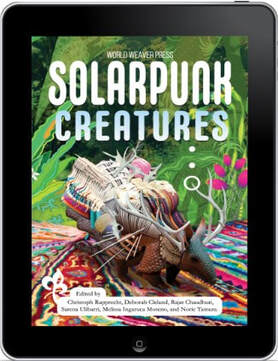
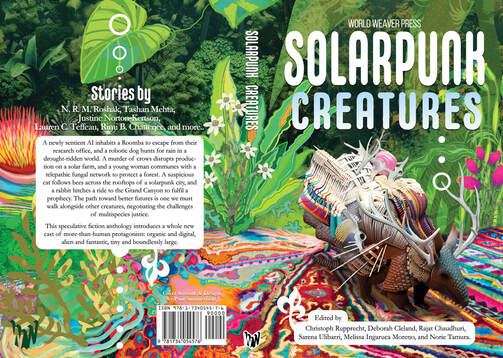
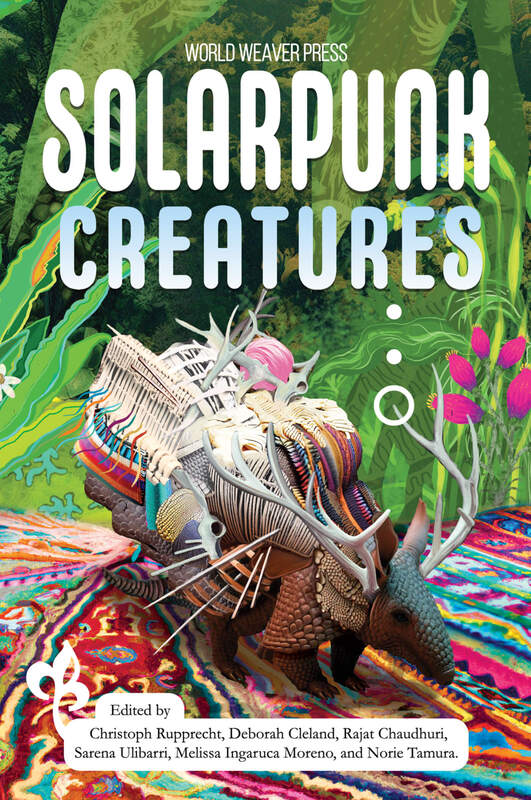
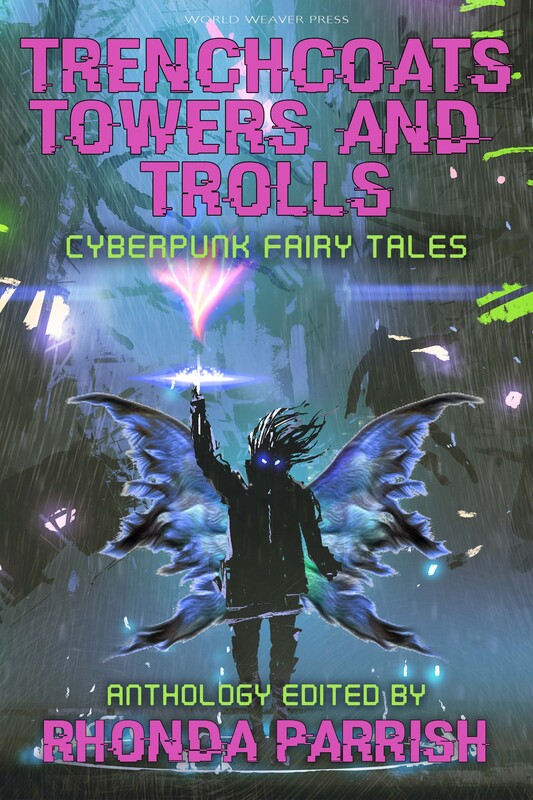
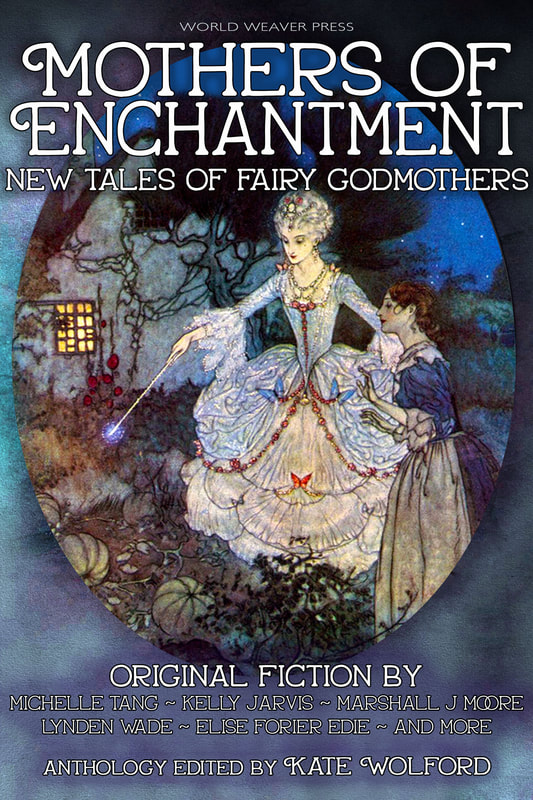
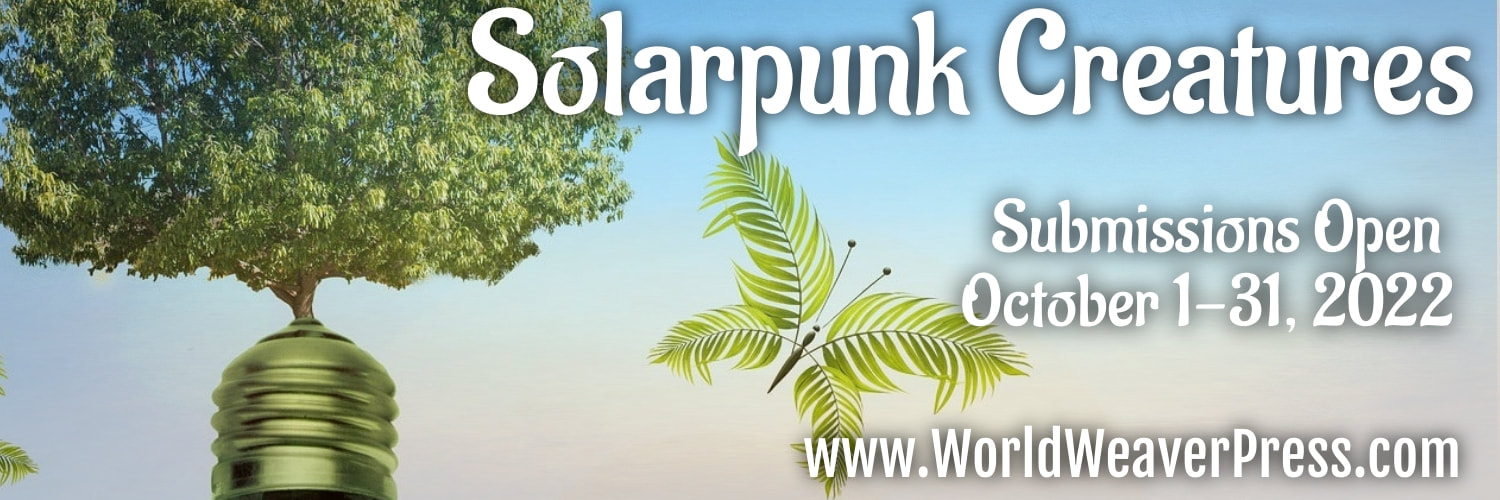
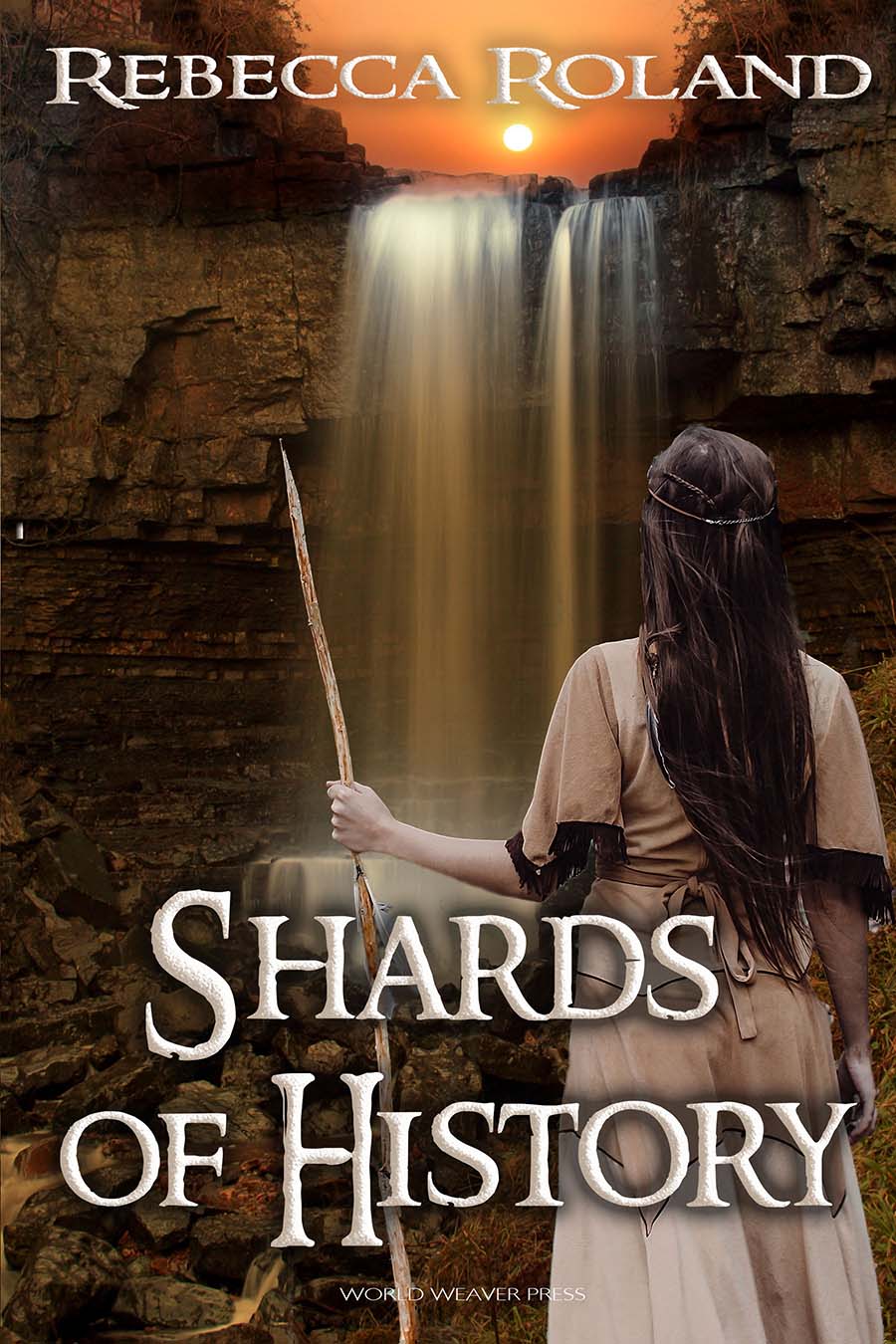
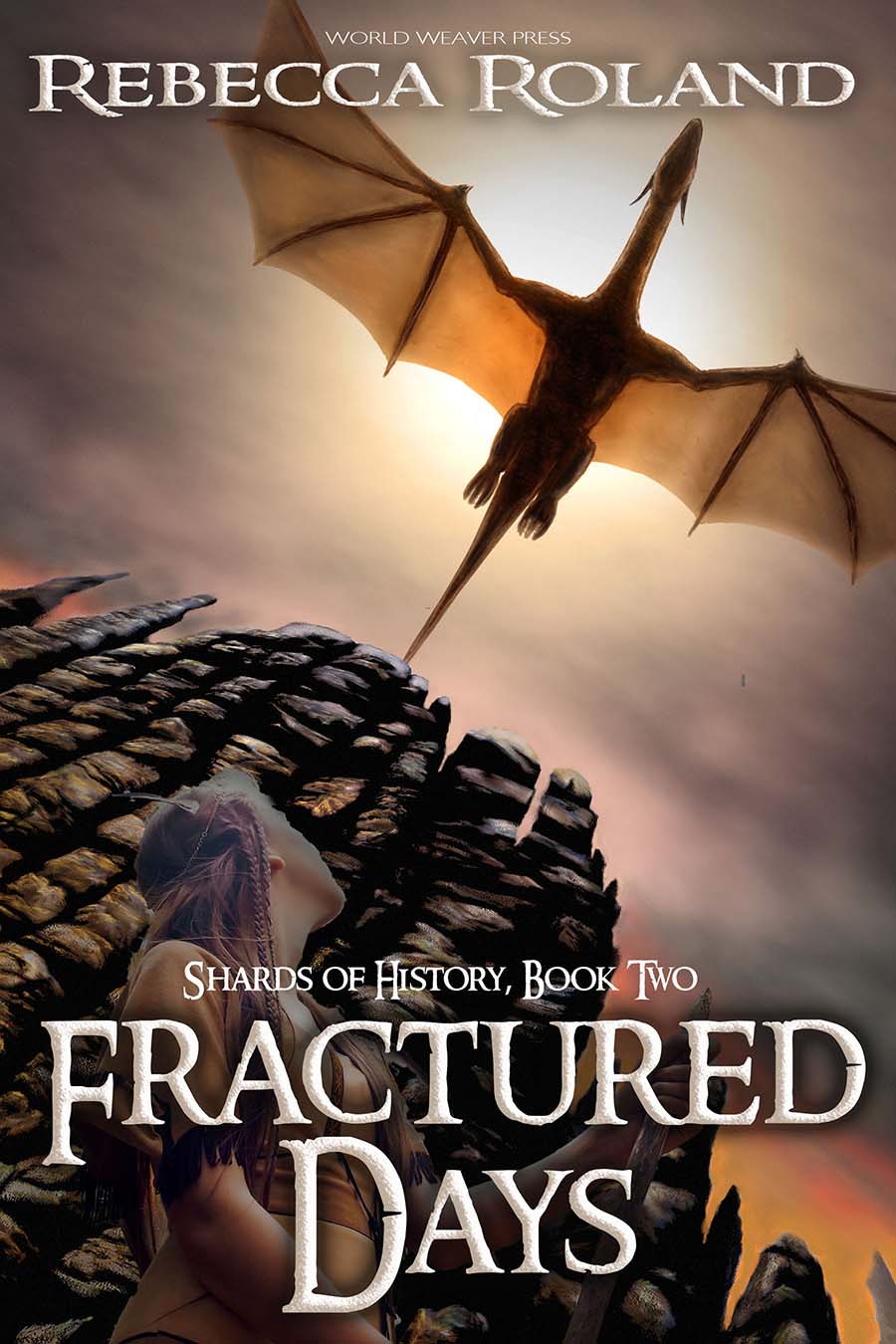
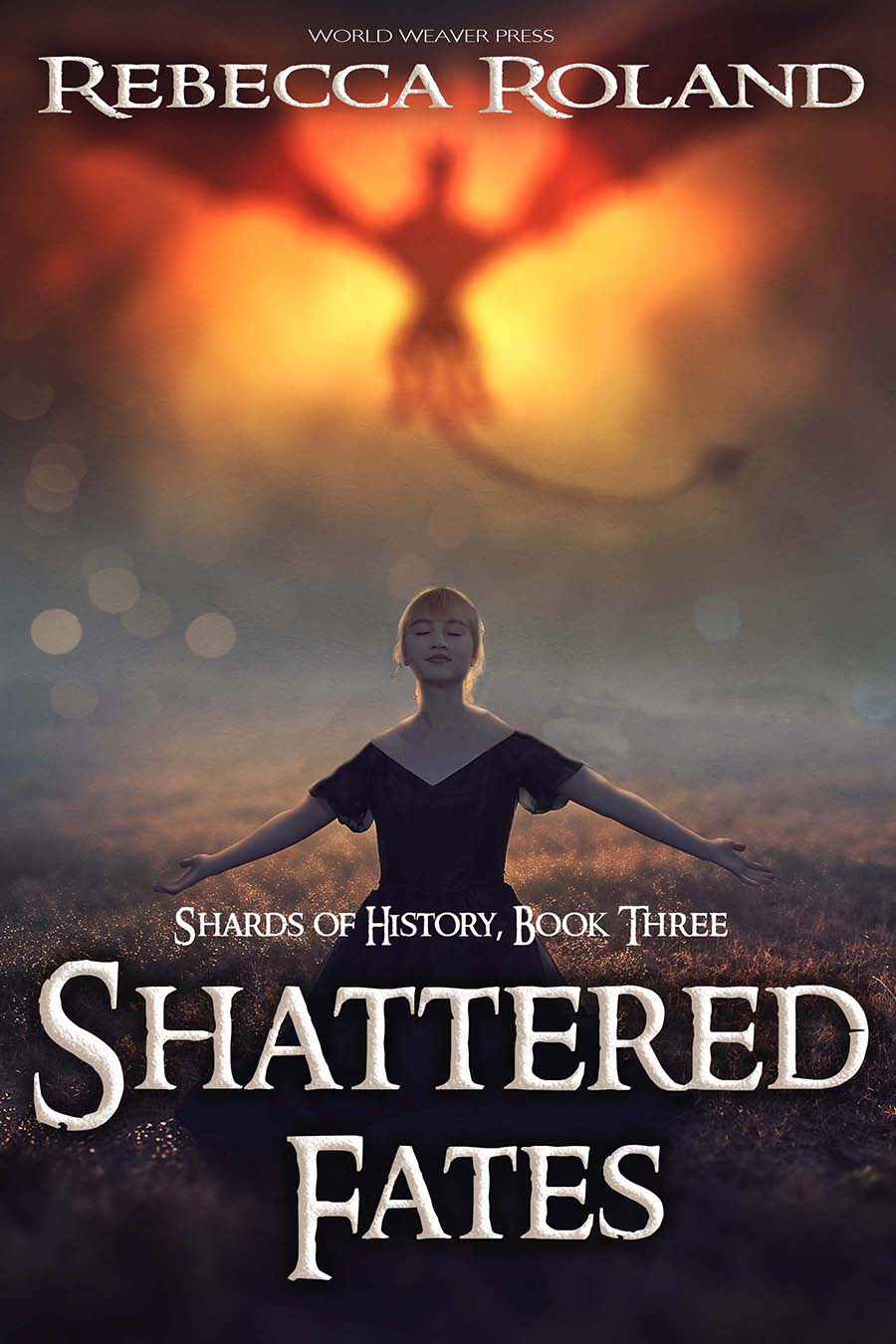
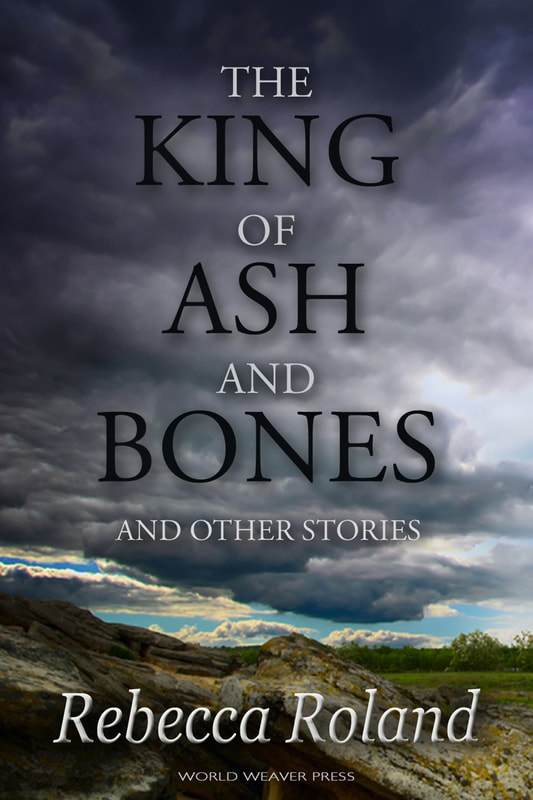
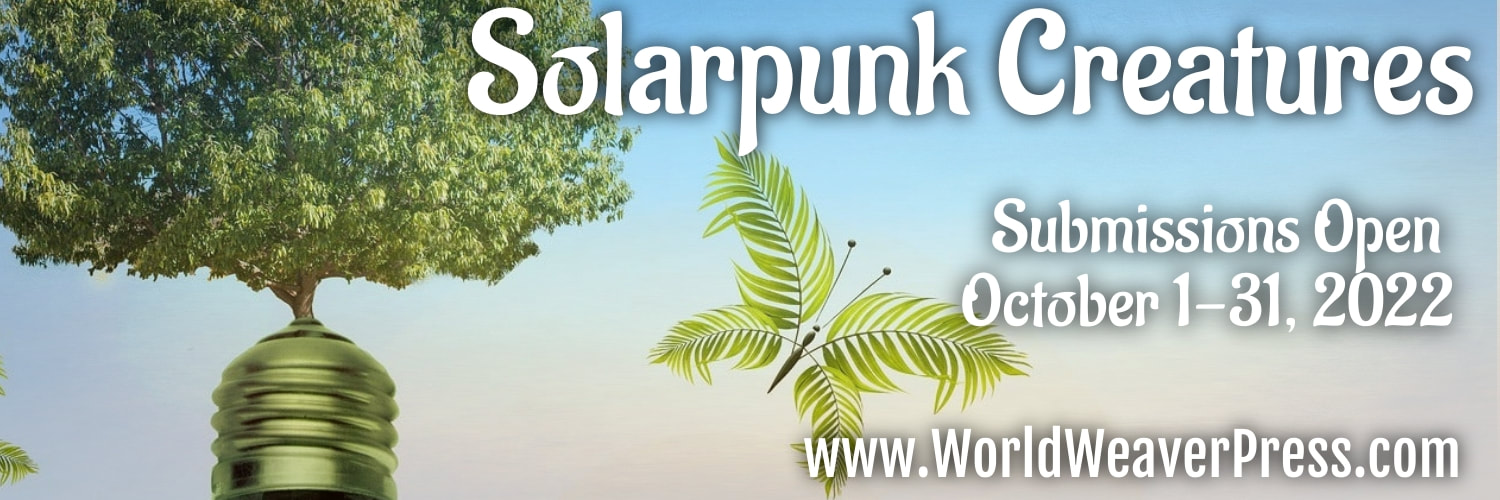

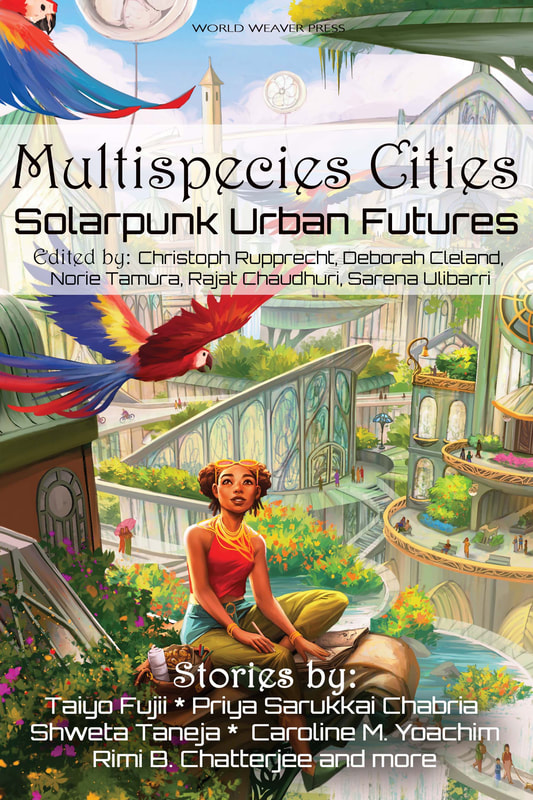
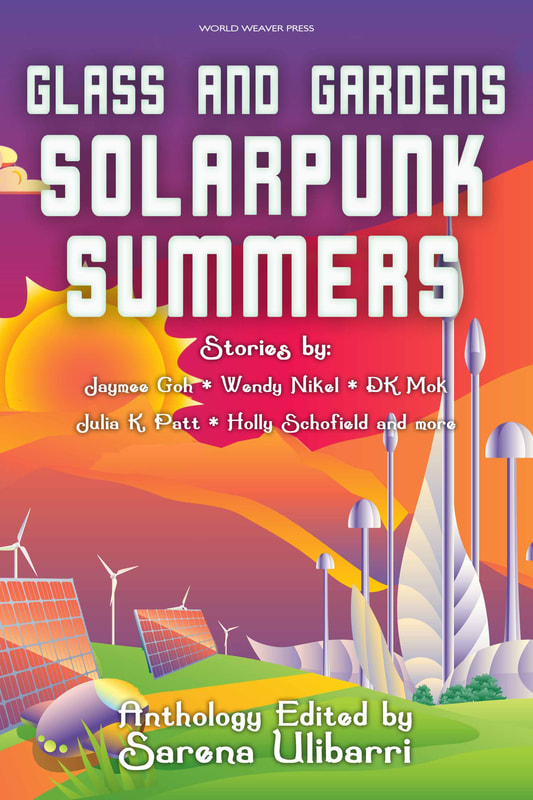

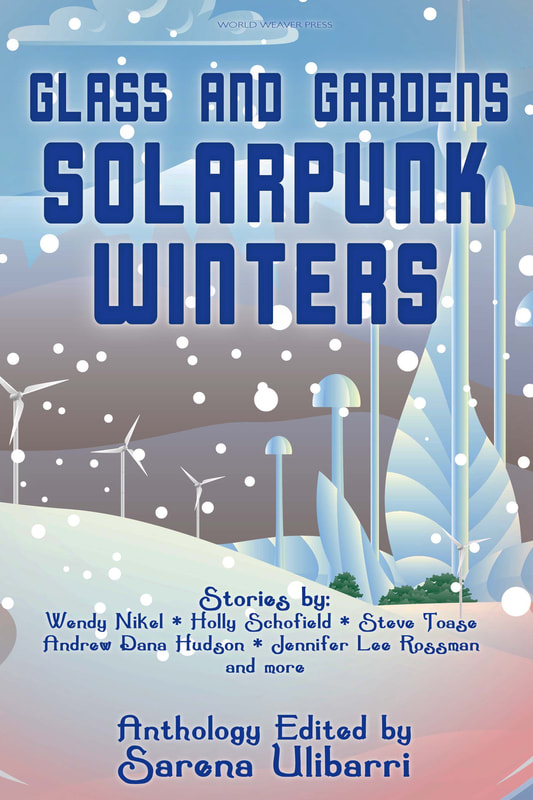
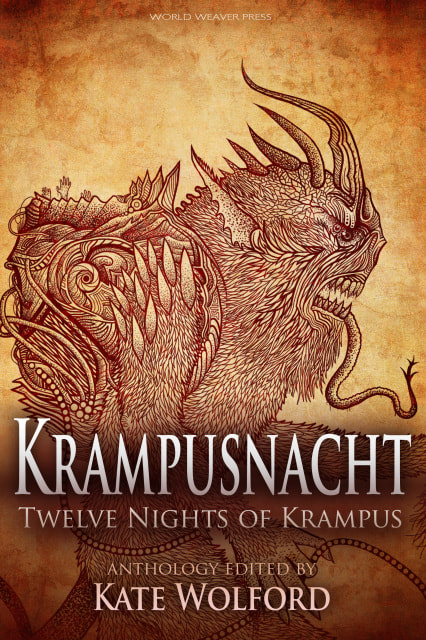
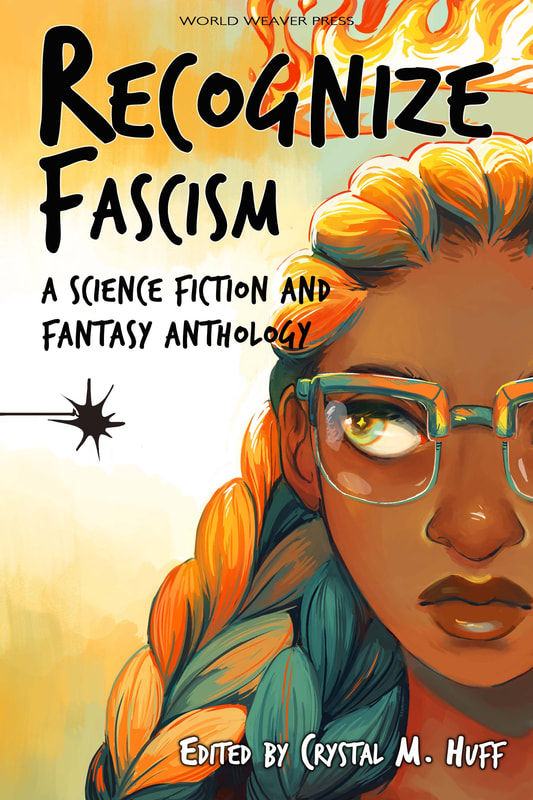
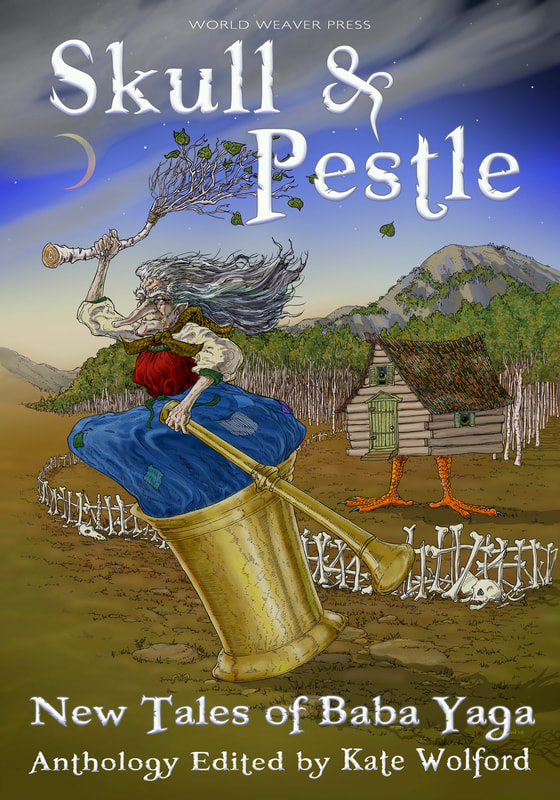
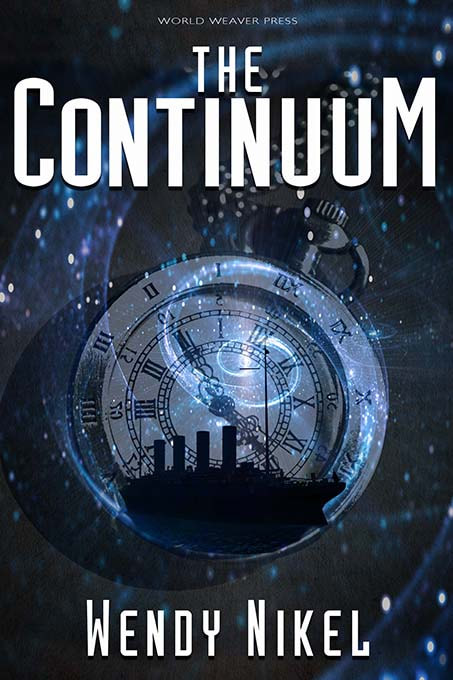
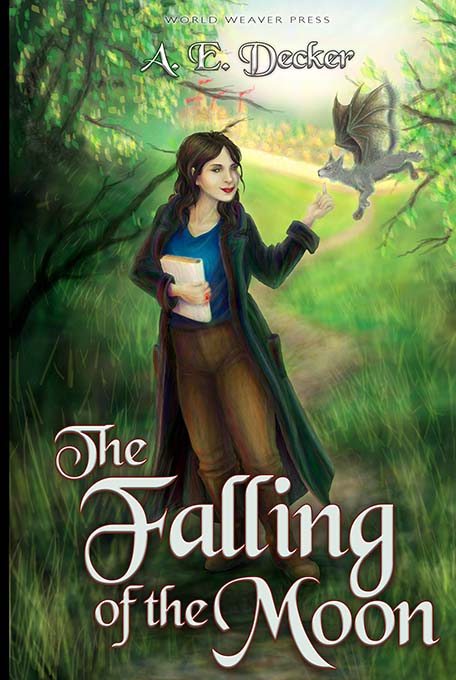
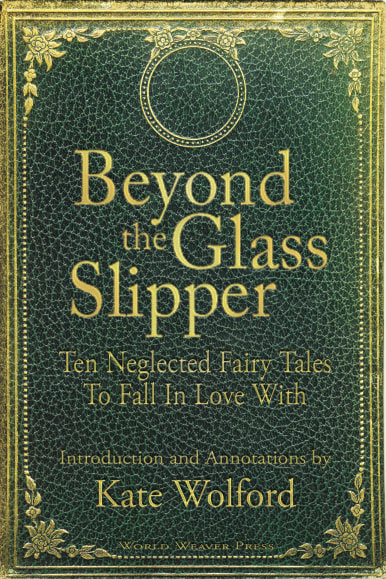
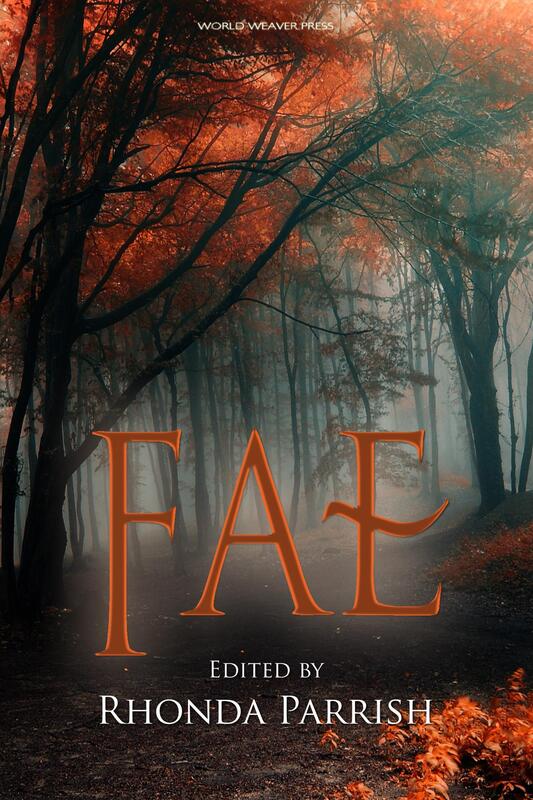
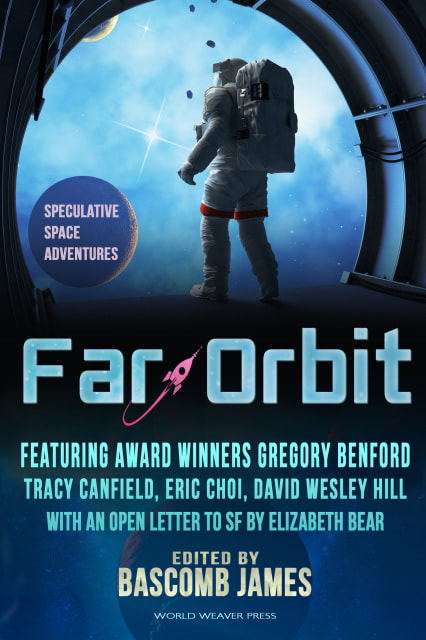
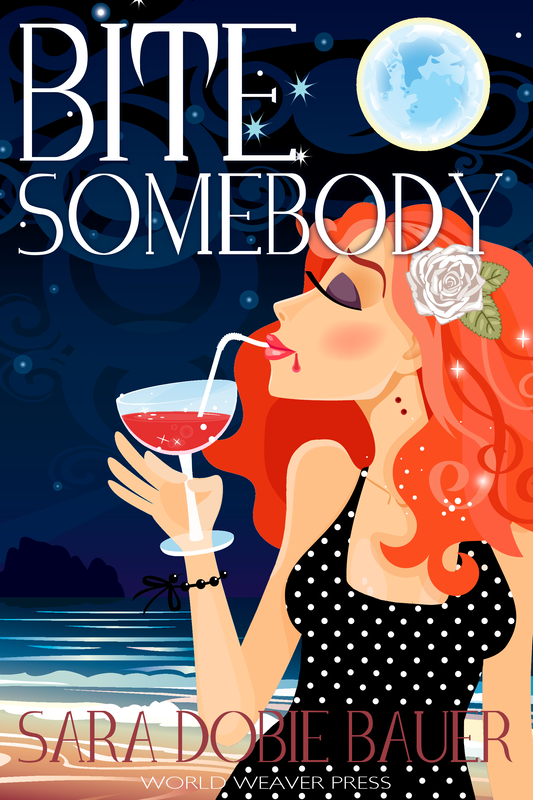
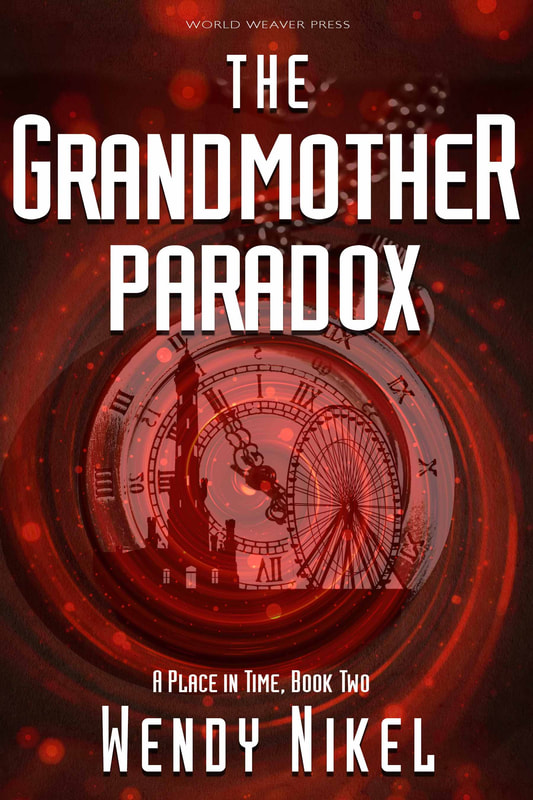
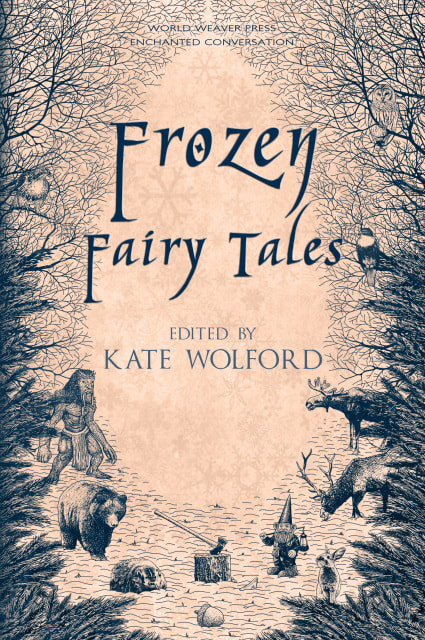
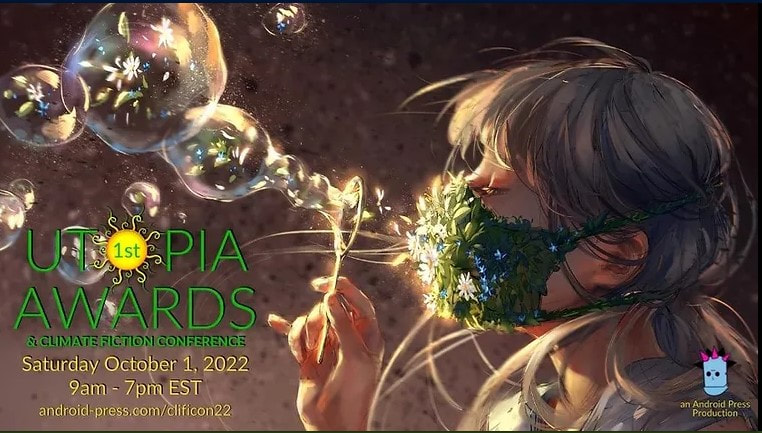
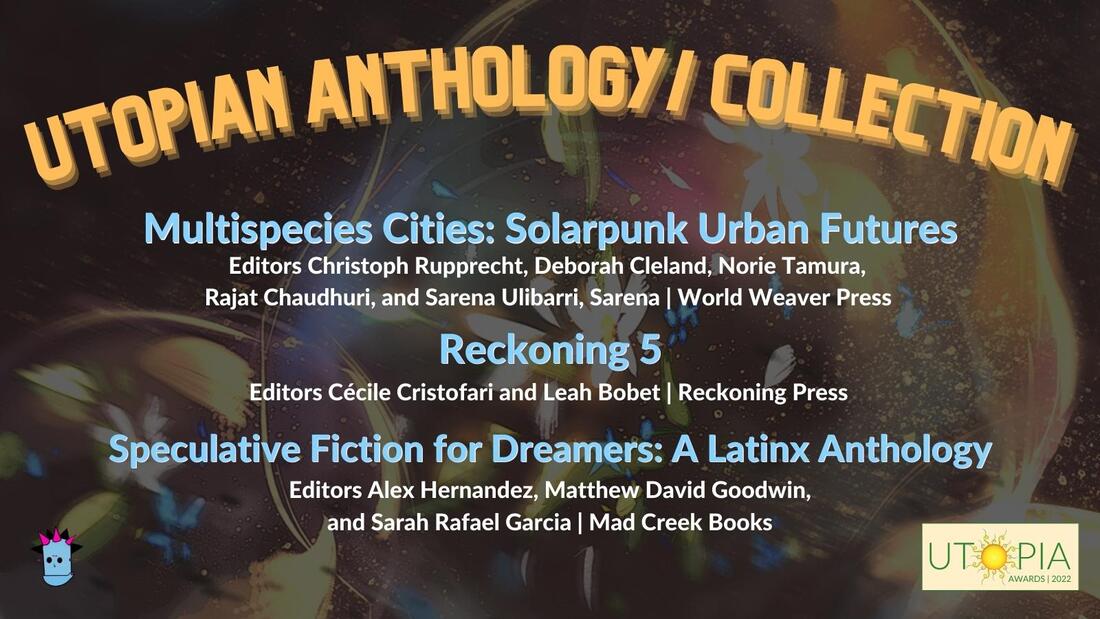
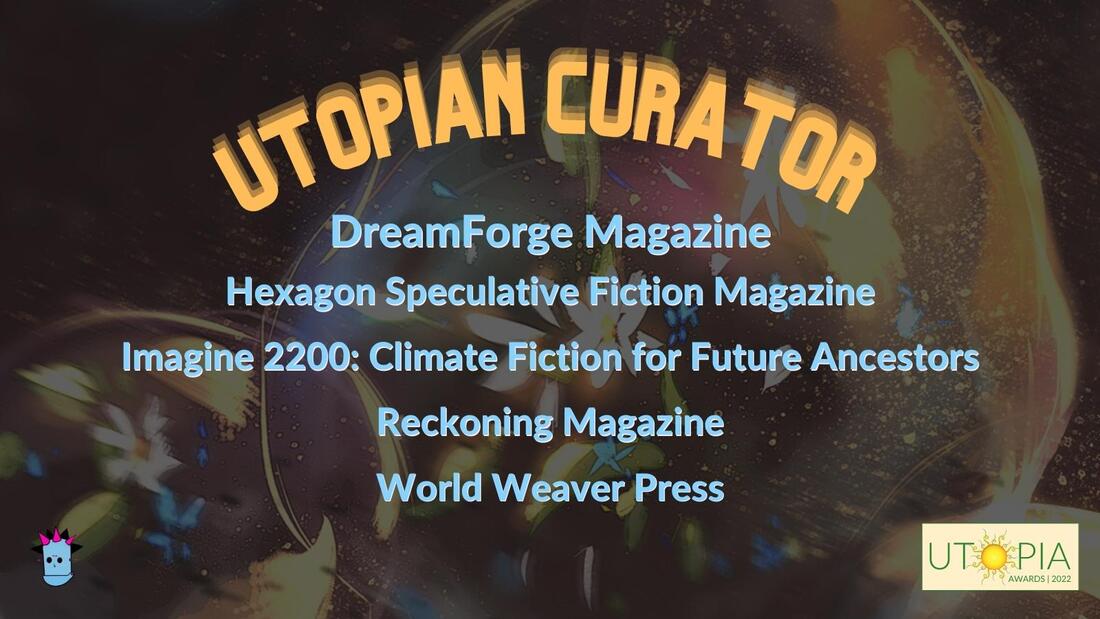
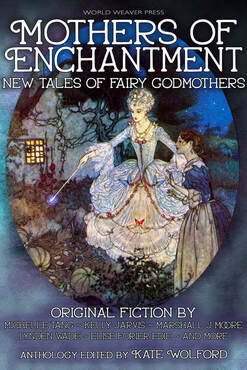
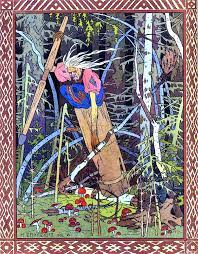
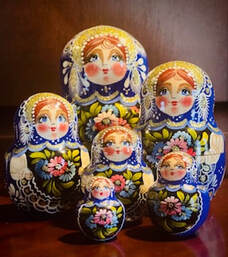
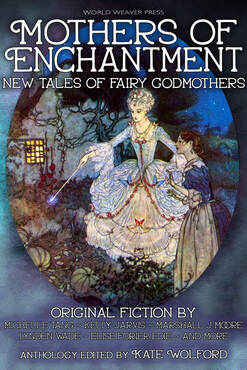
 RSS Feed
RSS Feed